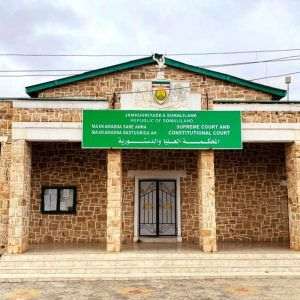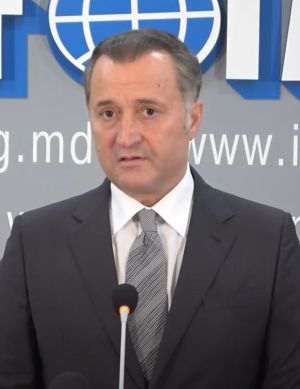The International Monetary Fund would be about to lend Romania approximately 20 billion EUR with talks between the Romanian authorities and Fund officials to be resumed today, according to the Financial Times, which quoted an official involved in the negotiation. According to the newspaper, after National Bank Vice Governor Cristian Popa and Finance Ministry State Secretary Bogdan Dragoi visited Washington last week, the Romanian Government and the IMF reached an agreement in principle on the loan, with signatures scheduled for the following weeks. IMF Representative for Romania and Bulgaria Juan Fernandez Ansola has already confirmed that an IMF delegation will travel to Bucharest on 11-25 March to discuss the possibility of granting Romania technical and financial assistance.
The Romanian officials, and especially PD-L politicians who (unlike their Social Democrat ruling colleagues) were aware of Popa and Dragoi"s travel to Washington and their purpose, only stated that the discussions with the IMF were meant to "test the waters" and definitely not to discuss the terms of a potential agreement. Beyond the politicians behaviour (which, as former Prime Minister Calin Popescu Tariceanu described it, is "chameleonic" about the foreign loan, considering that, not so long ago, they determinedly rejected any prospect of an agreement with the IMF) we are now witnessing a visible deterioration of our fragile political stability.
Because of the attitude of the political circles around PD-L, a obvious rupture has emerged within the ruling coalition, as the Social Democrats have good reasons to be upset with their "equal" ruling partners, Boc"s PD-L. A complete political rupture of the coalition concurrent with the ongoing electoral conflict between Geoana and Basescu could degenerate into a political crisis, in addition to the economic crisis, which is already generating enough problems and, perhaps, significant debt in the immediate future.
The IMF correctly sees Romania as one of the poorest countries in the E.U. According to the official quoted by the FT, the country will receive a substantial rescue package of some 20 billion EUR (over 25 billion USD), similar to that offered to Hungary in November 2008. This is five or six times more than Romania needs to cover the foreign financing requirements, considering the recent statements by National Bank Governor Mugur Isarescu, who stressed that Romania enjoyed better domestic stability than Hungary and other countries in the eastern outskirts of the E.U. The loan will probably be issued for more than 17 months, just as in Hungary"s case.
Why all this?
According to the economic-electoral messages sent by President Traian Basescu from the Parliament podium on Monday, Romania needs a "safety belt" for the crisis period. The President told us that the foreign loan was extremely necessary because of the current account deficit and the private debt, for which the service due this year was 24 billion EUR, and not necessarily as a form of support for the State budget. Finance Minister Gheorghe Pogea recently told Reuters that Romania would take a foreign loan anyway, even if it was not necessarily needed. The loan from the IMF will be exclusively routed to the foreign exchange reserve of the National Bank, while loans from the E.U. will finance the budget deficit.
If Romania becomes over-indebted to both the IMF and the E.U. to sustain the private debt, which, according to analysts, stands at over 70 billion EUR, the situation becomes troublesome. The term "private" is very wide. Which are the companies whose debts our grandchildren will barely manage to pay off?
The Financial Times also wrote that World Bank and European Commission experts will also arrive in Bucharest in about ten days to finalize the last details of the loan agreements. The Finance Ministry and the National Bank issued a press release to announce that they were considering taking medium-term foreign financing and had started preliminary talks with the European Commission, the IMF and other international financial institutions. According to the Finance Ministry, the foreign financing is intended to be a guarantee for the consolidation of the medium-term financial stability and help revive the business environment and regain investor confidence in the national economy.
The official quoted by the Financial Times pointed out that the package for Romania would come from the European Bank for Reconstruction and Development and the European Investment Bank and be used to secure financing for the private sector and financial institutions.
• Romania Takes IMF Loan To Finance Foreign Banks
We need a foreign loan to finance the current account deficit and the private debt and not necessarily to sustain the budget deficit, President Traian Basescu stated recently. According to him, the private debt service for this year is 24 billion EUR. At the end of 2008, Romania"s short-term foreign private debt was 22.5 billion EUR, of which 10.6 billion EUR (47%) as banking debt and 11.9 billion EUR (53%) as non-banking debt, according to the National Bank of Romania. Therefore, we need to borrow some 20 billion EUR from the International Monetary Fund and the European Commission and use half of it in order to sustain the banks" debt? This is what the figures tell us.
Practically, half of the foreign loan which Romania may take would be used to cover the private banks" debt. There are approximately 40 banks in Romania and only four have Romanian majority shareholders (Banca Transilvania, CEC Bank, EximBank and Banca Comerciala Carpatica). All others are subsidiaries of foreign banks. So they are foreign banks. Foreign capital accounts for approximately 95% of the capital in the Romanian banking system.
In addition to paying steep interest on any loan we take from a bank, now the entire country will also pay for the banks" debts, although most of the banks are foreign.



















































